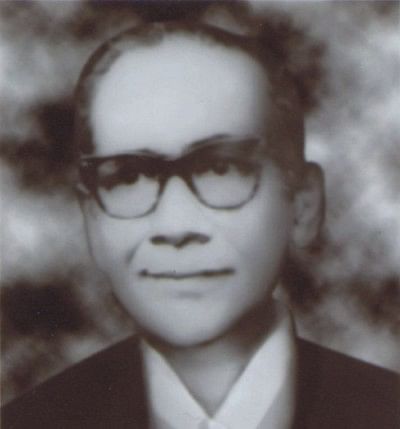On Justice Syed Mahbub Murshed

Syed Mahbub Murshed was born a hundred years ago on January 11, 1911. He passed away on April 3 1979. He is best remembered as a jurist, and later on as a public figure in the movement for the restoration of democracy in 1969. Yet he was a man of many parts, among which were his outstanding oratorial skills. Apart from his years on the bench (early 1955-to late '67), he never held any public office nor formed any political party.
What will best sum up his personality? Perhaps his dislike for the convenient and conventional truth; his unswerving support for the downtrodden; his love of what was right, however inconvenient. John Kenneth Galbraith once stated: "To the adherents of the institutional truth there is nothing more inconvenient, nothing that so contributes to discomfort, than open, persistent articulate assertion of what is real." Thrasymachus said: "I declare that justice is nothing else than that which is advantageous to the stronger."
To Murshed, justice was the very antithesis of this rhetorical statement towards the beginning of Plato's Republic, which forms the basis of the subsequent dialectic on the nature of truth.
November 16, 1967, marked the resignation of the late Justice Syed Mahbub Murshed, who had been Chief Justice of the East Pakistan High Court from 1964 to 1967. President Ayub's diary for January 6, 1967, says: "Justice Murshed has a brilliant, intelligent, literary bent of mind and aptitude for language, but he is impulsive and unstable."
Despite these aspersions, it is widely accepted that his resignation was over the issue of an independent judiciary, something for which Ayub's patience had diminished following his re-election in 1965. Murshed had just become too inconvenient to a ruler who was becoming increasingly autocratic. In 1963, one of his judgments in a case, which is described in brief as the "Minister's case," ensured that the legislative and executive functions of the state would remain separate, and that cabinet minister's could not sit in the national assembly.
This judgment was upheld in the Supreme Court. Others were to follow, including a celebrated judgment concerning the relationship between the federal and provincial administrations of the country. Ayub had not wanted Murshed to become Chief Justice of the East Pakistan High Court in 1964, despite the fact that Murshed was the senior-most judge, and it was his turn to become chief justice. But at the time, he relented, and let precedent take its course.
Ayub, of course, was a different man following his election victory over Miss Jinnah in 1965, and the war with India in the same year. Murshed decided to resign before resisting a regime that was becoming increasingly autocratic. He was expected to run against Ayub in the 1970 presidential elections. But a mass movement against Ayub gathered momentum in late 1968, to which Murshed added his voice. A report in Time magazine stated: "The opposition cause was also boosted by widely respected Syed Mahbub Murshed, former Chief Justice of the East Pakistan High Court, who told the nation that 'we are not destined to perish in ignominy if we put up a determined and united resistance to evil.' "
These events are not merely mundane facts in the history of Bangladesh and Pakistan, but have a strong resonance for the present. The great German philosopher Immanuel Kant had advocated a republican constitution, which would ensure peace. According to him, the worst form of despotism, which ultimately leads to violence, occurs when there is no separation of powers; those who administer laws are one and the same as those who decree them.
Ensuring the separation of powers between the executive and the legislature requires an independent judiciary, and judges like Murshed, to fearlessly exercise these principles. Let us not forget that despotism is not simply confined to absolute monarchies or dictatorships, but can also feature in flawed democracies, even when rulers happen to be elected.

 For all latest news, follow The Daily Star's Google News channel.
For all latest news, follow The Daily Star's Google News channel. 



Comments